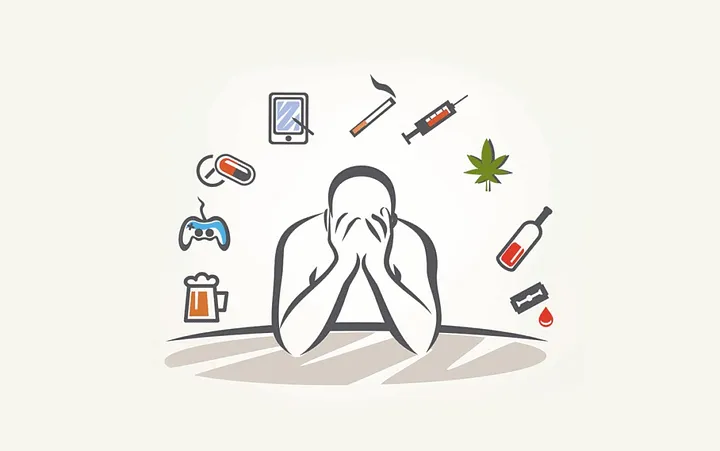How to Actually Quit Any Addiction in 9 Minutes

Addictions can control our lives, but breaking free starts with a single decision. You don’t need to have everything figured out to start; you just need to commit to 9 minutes. This method isn’t about solving the entire problem in one go but about taking manageable steps that create real momentum.
Understanding the Root of Addiction
Why We Get Addicted
Addiction often stems from an attempt to escape discomfort, whether physical, emotional, or psychological. It might start as a coping mechanism but can quickly spiral into dependence.
How Addiction Impacts Your Brain
Addictions hijack the brain’s reward system, releasing dopamine and reinforcing the behavior. Over time, the brain demands more of the addictive substance or action to feel the same level of pleasure, creating a vicious cycle.
The 9-Minute Solution
The Power of the 9-Minute Rule
Nine minutes may seem insignificant, but it’s long enough to interrupt an addictive urge and short enough to not feel overwhelming. Use this time to engage in an activity that redirects your focus or challenges your current mindset.
Breaking Tasks Into Small Chunks
Instead of trying to quit entirely in one go, break your goal into small, achievable steps. These micro-wins build confidence and momentum.
Step-by-Step Guide to Using 9 Minutes to Quit Addiction
Step 1: Acknowledge the Addiction
The first step is always awareness. Admit to yourself that this behavior no longer serves you and is holding you back from your goals.
Step 2: Identify Your Triggers
Spend a few minutes reflecting on what sparks your addictive behavior. Is it stress? Boredom? A specific time of day? Identifying these triggers is crucial for avoiding them.
Step 3: Replace the Habit
When the urge strikes, use your 9 minutes to do something else. Try going for a walk, meditating, or calling a friend. The key is finding a healthier outlet for the energy.
Step 4: Commit to a Micro-Action
Don’t promise yourself you’ll quit forever; instead, commit to not engaging in the addictive behavior for the next 9 minutes. It’s a manageable commitment that feels achievable.
Step 5: Track Your Progress
Keep a journal or use an app to record your successes. Seeing your streak grow can be a powerful motivator.
The Role of Mindset in Breaking Free
Why Self-Compassion is Key
Beating yourself up for slipping won’t help. Treat yourself with kindness, acknowledging the progress you’ve made rather than focusing on setbacks.
How to Stay Consistent
Consistency is more important than perfection. Focus on showing up every day, even if you don’t always succeed.
Practical Tools to Support Your Journey
Journaling
Write down your feelings, triggers, and progress. Journaling helps you understand your patterns and celebrate your growth.
Mindfulness Techniques
Practices like deep breathing, meditation, or yoga can help you stay present and resist urges.
The Accountability Partner System
Having someone to check in with regularly can keep you motivated and on track.
Overcoming Relapses
Why Relapses Happen
Relapses are common and often occur when we face stress or think we’ve “got it under control.” Recognize them as a learning opportunity, not a failure.
How to Bounce Back Quickly
After a relapse, reflect on what triggered it and adjust your plan to avoid similar pitfalls. Remember, progress isn’t linear.
The Long-Term Benefits of Quitting
Improved Physical Health
Quitting addiction improves energy levels, strengthens your immune system, and reduces the risk of diseases.
Better Mental Clarity
Addiction clouds judgment and focus. Breaking free gives you a sharper, clearer mind.
Stronger Relationships
Without addiction, you can dedicate more time and energy to meaningful connections with loved ones.
Conclusion
Quitting any addiction doesn’t require monumental willpower—it starts with a simple decision to take 9 minutes. By focusing on small, consistent actions, you can reclaim control over your life. Remember, progress is more important than perfection, and every step forward matters.
FAQs
1. Can I really quit an addiction in 9 minutes?
No, but you can use 9 minutes as a starting point to redirect your behavior and build momentum toward quitting.
2. What should I do during my 9-minute action?
Choose activities that distract or ground you, like walking, journaling, or practicing mindfulness.
3. What if I relapse?
Relapses are part of the journey. Reflect on the triggers and adjust your strategy to prevent future slips.
4. How long does it take to fully quit an addiction?
This varies based on the individual and the addiction, but consistency and persistence are key.
5. Should I seek professional help?
If the addiction feels too overwhelming to handle alone, consulting a therapist or support group is highly recommended.


